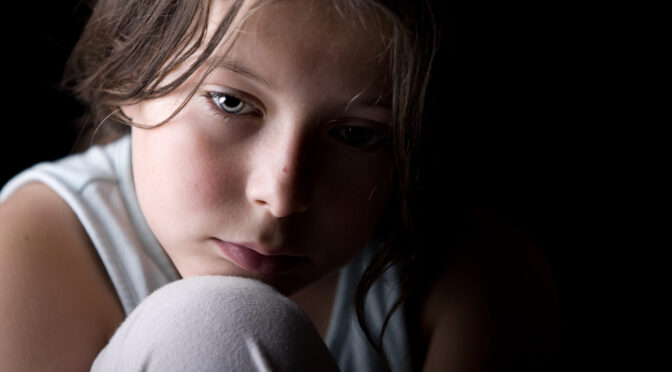Leonardo da Vinci, Isaac Newton and Sigmund Freud are three of the most revered geniuses in human history. They changed the artistic landscape, changed the way we see the universe and even changed the way we see ourselves. However, the one thing that they have in common is they all had terrible childhoods.
A bad start to life can be a grave setback for anyone. As a child, you are often a product of your environment, helpless to any physical and emotional abuse that you are subjected to. Da Vinci, Newton, and Freud are an example to anyone that faced a difficult beginning that it doesn’t have to define you.
It is a challenge that I have faced myself. Growing up in a home with a frequently absent and near silent father as a result of PTSD after serving in the army and a manic depressive mother, neither myself or my two brothers had a particularly settled existence – although I was lucky to have two loving, albeit flawed parents. In comparison with many people, I had a harmonious childhood.
In spite of the more severe struggles that you may have faced during your upbringing, it is crucial to learn from your experiences and not let them negatively affect the rest of your life. It is a struggle that millions of people around the world contend with every day. However, there are ways to ensure that the painful experiences that you faced shape you into a better, more empathetic person.

1. Reframe your narrative
Looking back on a miserable or abusive childhood puts you in the position of a helpless victim. It can make you feel unloved and unwanted. This feeling drags you into a cycle of mental self-abuse. However, by placing yourself in your own memory, you can empower yourself.
Instead of feeling helpless, think back to the time when you were a child, then consider how you pushed yourself out of that situation to become the person you are today. The child in your memory ceases to be a victim and becomes a powerful symbol of just how far you’ve come. As Dr. Harold Bloomfield, psychiatrist and author, says ‘you can find value in past adversity, you can neutralize its harmful effects and foster healing.’
2. Reject shame and blame
Shame is a spiral that can be the most difficult of all to recover from. It affects you like no other emotion because it attacks who you are as a human being. Bloomfield describes it as the ‘cancer of the spirit’ as it gives you the feeling that you are undeserving of joy or love.
The shame that exists as a result of a bad childhood leads you to assume that your parents (or guardians) treated you poorly because of who you are, rather than through a fault in them. To counteract the feeling accept that the fault does not lie at your feet.
When you shift the shame from yourself, do not transfer the feelings into blame. Accept the mistakes of your parents. Blame can poison your mind and make you focus on anger, in the same way that shame poisons your spirit. Allowing blame to take over is giving yourself a get out of jail free card because the mistakes you make can be attributed to someone else. Remember that now you’re an adult you’re the master of your destiny!
3. Don’t dwell on regret

One pitfall of letting go of shame and blame is allowing regret to take up a predominant place in our minds. It leaves us thinking what if or if only, neither of which address how to improve your life moving forwards.
Move your thoughts onto the lessons that you learned. Think once more of the version of yourself as a child, think of every lesson you learned from every negative experienced he or she encountered.
Regret will then cease to be negative; it will transform into an understanding of where you have been and how to get where you`re going.
4. Express your emotions
Much of the negative things we think and feel are as a result of deep wounds that we have harbored from childhood. Now that you’re older it is time to address those emotions. Whether you do that by talking them through with friends, seek a psychiatrist, write them down, sing or even paint is unimportant, just make sure you release them.
On days when the weight of the past weighs heavily on your shoulders, try shouting as loud as you can in a wide open space or a room on your own. Visualize the pain as you do it and just allow yourself to feel it before expelling it from your heart and mind.
Katherine Mayfield, an award winning psychiatrist and author, believes that any emotion release benefits her move on from her emotionally abusive childhood.
‘The more you can release your pent-up feelings, the more of the past you’ll clear away. Go to a sad movie and cry buckets, or whack a bed with a plastic bat—whatever works for you. Releasing emotions releases energy, which you can then use to create a more authentic life.’
5. Respect yourself
 Don’t ever forget that you’re worthy of respect. Many people who experience childhood abuse try to alleviate the pain they feel through legal and illegal substance abuse, as well as food.
Don’t ever forget that you’re worthy of respect. Many people who experience childhood abuse try to alleviate the pain they feel through legal and illegal substance abuse, as well as food.
Don’t fall into the trap of accepting that you are worthy of poor treatment.
Take the time to look at other people, imagine each of them has been through the same experiences as you have and then ask yourself if you still think they are worthy of respect.
The answer will undoubtedly be yes, so don’t look at yourself as undeserving.
6. Nourish relationships
Love and joy are two things that the more we share them the more we receive in return. It may sound cheesy, but it’s true. If you’ve had a tough time when you are young, it can be difficult to see the truth in the lesson. In spite of your parents` treatment of you, you still love them and only wish to feel the same emotion in return. This can make accepting, loving relationships difficult.
However, by nourishing the relationships that you have built in your adult life, you will learn that love is an emotion that can give you the sense of belonging that you were never given as a child. Spend time with friends, have long lazy Sundays with your partner and show your kids the love you wished you had received every single day.
7. Be your own coach and cheerleader
 The most valuable lesson that you can learn from a tough childhood is just how strong you can be all on your own. No matter how bad things were, you made it out the other side and now have all the potential in the world to thrive personally, professionally and spiritually. This is a lesson that takes longer to learn when you’ve grown up with a strong support network.
The most valuable lesson that you can learn from a tough childhood is just how strong you can be all on your own. No matter how bad things were, you made it out the other side and now have all the potential in the world to thrive personally, professionally and spiritually. This is a lesson that takes longer to learn when you’ve grown up with a strong support network.
So next time you begin to feel shame, regret, anger or hate rise to the surface as a result of your upbringing just remember how strong you can be. When you are considering taking a risk remind yourself that you can do it. Even on those occasions when you feel alone and unsupported, remember that you are responsible for all the best qualities that you possess.
The best way to do this is to write down the five qualities you like and respect most about yourself and your top three biggest individual accomplishments. This list will serve as a reminder that no matter how your life began, you have seized the initiation and improved it off your own back.
Recovering from your negative childhood memories takes a great deal of mental strength. However, by accepting the feelings and addressing them, you are taking a step towards personal acceptance, as well as furthering your ability to empathize with others in situations of suffering. So don’t dwell on your painful past, focus on your beautiful future.
Sources:
http://www.prevention.com/mind-body/emotional-health/recover-unhappy-childhood
http://tinybuddha.com/blog/recovering-from-a-difficult-childhood-5-steps-to-reclaim-yourself/
http://www.bigstockphoto.com/image-24665465/stock-photo-child-abuse

